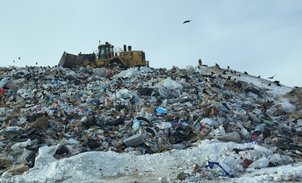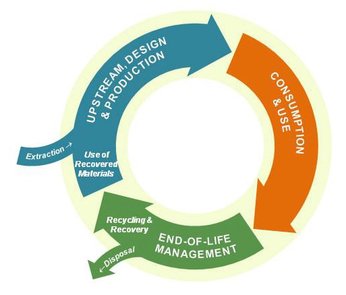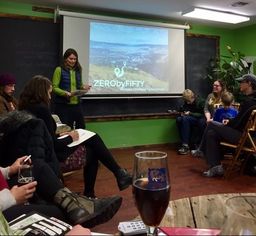|
This may sound strange, but I have many childhood memories about waste. I remember picking up trash at campsites and on walks along the beach; my dad methodically separating recyclables in the bins under the kitchen sink; my grandma rinsing out plastic ziplock bags to be reused until they fell apart; my mom bringing her reusable grocery bags to the store before it was cool. We didn’t have a lot of money, so things were used and reused. Leftovers were a hot commodity. The underlying message was: nothing goes to waste. When I moved to Montana a few years ago, it was the first place I’d ever lived where there my recycling wasn’t automatically picked up along with my trash each week. Paying extra for recycling?! That seemed crazy – no wonder it wasn’t common. It’s true, we’ve got our work cut out for us here. Montanans make more waste than the national average, at 7 lbs per person, per day, compared with 4.3 lbs. Another dubious distinction: Missoula’s recycling rate of 22% is well below the national average of 35%. I often talk to people who share my frustration about the lack of recycling options here in Missoula. But I’ve also come to learn that the problems with waste are much bigger than what happens to stuff when we dispose of it, either in the landfill or the recycling bin.
 The Missoula Landfill. The Missoula Landfill. Every pound of waste we recycle or throw away represents a shocking 71 pounds of waste that was created upstream (through raw materials extraction, manufacturing, transportation, and everything that happens before stuff gets to us)
Ultimately, we can’t recycle our way to Zero Waste – there’s a reason Reduce and Reuse are the first two Rs! Zero Waste is a lofty aim, but Missoula is making progress. In fact, one big goal within Climate Smart Missoula’s Zero Waste Bucket has already been checked off the list: in February 2016, our city council passed a Zero Waste Resolution, which committed our community to creating a Zero Waste Plan, a blueprint for reaching the ultimate goal of a 90% reduction in waste by 2050.  Courtesy Oregon DEQ Materials Management: http://www.oregon.gov/deq/mm/Pages/default.aspx Courtesy Oregon DEQ Materials Management: http://www.oregon.gov/deq/mm/Pages/default.aspx Get Involved! The process of creating that plan is now underway, and to make it a real, practical guide and not just shelf art, we need your input and ideas! Do you think there should be an incentive for developers to hire a deconstruction crew instead of demolition? Would you like to see a municipal composting program for food scraps? Tell us! Here’s how to get involved:
Moving toward zero waste is about recognizing the impact our stuff has across its life cycle – where it comes from, how we use it, and what happens to it when we're done using it. When we Reduce, Reuse, and Recycle, we come closer to living within the natural limits of our planet, creating a healthier, wealthier, and more responsible community for generations to come. -Abby
50 Comments
|
AuthorsAbby Huseth Archives
July 2024
Categories
All
|


 RSS Feed
RSS Feed


